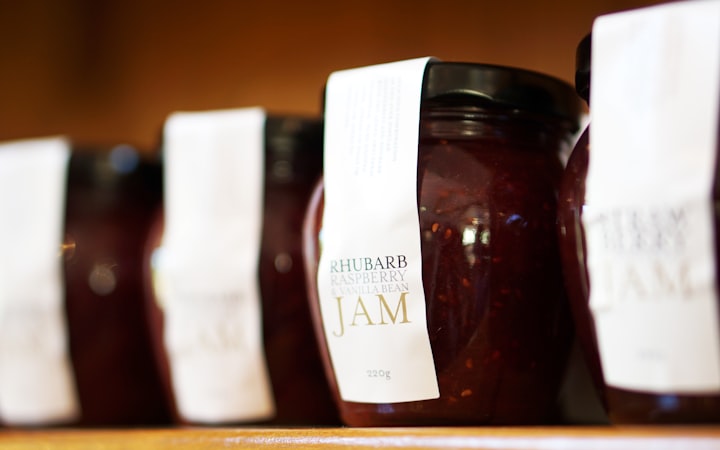Tips, Tricks, And Talks With a Beginner: Writing Horror
"The main difference with horror is that it partners with one of the most powerful and relatable emotions in human history. fear"

It is officially spooky season, and probably one of my favorite times of the year. The weather cools to brisk but comfortable. I'm not running to the AC or hosing myself down to keep me from burning up in the hot summer sun, but I'm also not layering up like I took an expedition to the arctic. Here in New England we just conveniently call it hoodie weather. One mildly heavy garment of clothing that you can wear over and over again without arousing suspicion. The beautifully calming prelude to winter marks with it one of my favorite holidays culminating at the end of October, Halloween. Granted for a lengthy period of time the commercial Christmas season has tried to extinguish its jack o lantern glow by invading its space, to no avail. I, like many other people, enjoy the holiday and the month surrounding it for one simple reason, it’s easy. Unless you're dressing up there isn't much planning. As an adult of course what you get is friends, family, an eerily calm atmosphere perfect for a bonfire and a reason to watch something scary. Probably the number one reason I love this time of year is it invites me to exercise writing in one of my favorite genres, the genre of horror. That's why for this particular column I decided to do a special writing horror edition.
Interestingly enough after an extensive hiatus from writing, I decided to return with the ambition of writing a piece in that style. Its original intention was to be a simple story; simple concept, simple characters, with a twist ending. I am glad I did because while in its inception it was supposed to be something to help stretch out my legs, and maybe shake off the rust, it grew into something far bigger. The story began to write itself the more I delved into it. A small idea sparked my very first short story in almost a decade. The length of the story was far too long to post on vocal as one piece, so I gladly broke it up and made it into three separate pieces. I hope you enjoy.
Ok so being that this series is purely from a beginner (my) perspective I am going to negate some of the expert findings in regards to giving you an authentic experience. I believe it is more relatable that way. I suppose this was stated previously, but it's always good to have a refresher. Like a Shakespearean soliloquy.
Anyway, I'd like to go through why I think horror and the genres that coincided are such an interesting and all-encompassing niche.
I don't want to say writing horror is easy because we all know writing anything is hard. But the main difference with horror is that it partners with one of the most powerful and relatable emotions in human history. That emotion is fear, it lays such a massive umbrella over what you can create and how you can link it to a real situation. It is easy to get invested on both sides, It pulls you in just as much as your readers.
With that in mind A few good ingredients to a good horror story are these:
A SECRET ENDING:
While this particular ingredient may lend itself to a lot of fiction writing, I believe it has a special place in the horror genre. True fear is predominantly the result of the unknown. It is a wonderful thing that you can take the heart of ambition and make it the centerpiece of your work. like a cat chasing a mouse then realizing it was a shadow all along. I know it is very hard sometimes trying to create a mystery or a twist for your story and it is even harder to lead your readers astray. This can ultimately lead to some bumps in the road. Incomplete thoughts and re-editing nightmares. this leads to procrastination, and sometimes unfinished work. While there is no easy workaround to these problems I do have a few aids that I use myself.
1.Start with a what-if. And lend it to one of your favorite horror subgenres. I.E. What if the main character is a zombie? What if they were dead all along? What if you were trapped in a loop? Just start from there. I find writing is a snowball effect. Some of your best ideas come out during the actual practice and that rings true for this. Your what-if can start as a simple idea then roll into an ending nobody ever saw coming. Trust yourself and the process .
2. Go with something simple, predictable in fact. If you have to, take an idea that is already done (this is for practice purposes) if you are really dry on ideas. In accordance with aid number one it might evolve into something other than you originally intended. If not then lend your talent to making the world as vivid as possible immersing yourself in the story and bring out your best Stephen King. A lot of the time while predictable, it is a good baseline for you to exercise your craft. And you will find that the journey is greater than the destination even if we know what the end is.
SCARE YOURSELF:
Matt Groening the creator of the Simpsons once said “Create something that YOU find funny” when asked about his keys to success and writing a record-breaking cartoon sitcom. I find this to be evident when it comes to writing horror as well. “Create something that scares YOU.” If you really want immersion on your side, double down and throw your own nightmares into your work. If you want to relate fear or any of its synonyms, write about what scares you most. That emotion will come through. It will create an emotional and relatable link with your reader. They might not jump out of their seats, but I can guarantee you they will be thinking about it long after they’ve read it. It can be anything really. It doesn't have to be your standard monster, haunted house, ghost, etc. if you are willing, use some of your phobias, even the irrational ones. I have an illogical fear of muppets (don't ask because I'm not telling.) I've already created and developed a world where Kermit and the gang aren't exactly as they seem. I did say irrational, didn't I? If you want to reach a reader's heart then write close to yours.
USE YOUR IMAGINATION:
Now when you think about the horror you don't necessarily equate it with child-like wonder but In fact, that's exactly what it should be. The theme here is relatability with the real world, and with your writing. Think of a child's overactive imagination and how it lends itself to fear. Blurring the lines from what we perceive is real and what is in fact actually scary. Is that shadow outside my window my neighbor walking their dog or is it a ghost trying to get in, biding its time waiting to enter. This type of imagination gives you unforeseen leverage and a heightened perspective. Triggering something that may have been initially simple into something thought-provoking. Remember this as well, this is your story, how do you define scary. open that childlike wonder up, and contemplate unlikely scenarios with an unlikely plot. This opens up some seriously interesting and unique world-building. Like instead of a haunted house what about a haunted mountain. This also flips the script on building a dynamic character. Wouldn't it be interesting to take the perspective of the possessed doll? You're the master of your own nightmare, tap into your adolescent imagination and the possibilities are endless.
In closing, I want to rely on my self-proclaimed best tip, when writing in the genre of horror: have fun. A good scare is surprisingly good every now and again. It really generates some creative works through such a powerful emotion. But it also invites the contrast that with fear there is hope that not everything is as bleak as it seems(sometimes depending on the ending of course). Recognizing horror and fear, oddly enough, helps you see the other side of the coin. And funny enough it helps going forward. Use horror as a catalyst to some of your other less spooky works.
Until Next Time all, until then happy writing
James U. Rizzi
About the Creator
James U. Rizzi
I cant wait to see what I can create here.






Comments
There are no comments for this story
Be the first to respond and start the conversation.